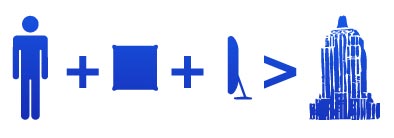Enter “web designer” in a search engine you will be confronted with thousands of results – how do you know which one to choose?

What sort of website to you want to create?
Web developers love jargon as they like to give your site a label. So is the site commercial (an e-commerce or affiliate site), personal, organisational (maybe a .org), educational (maybe a .edu), entertainment, news or blog?
Your site will not be adequately explained with one word. Maybe you want an commercial website with a blog, or an entertainment website with an e-commerce angle, but this can be explained after you’ve decided upon the most adequate one or two word description of your website.
What sort of functionality do you want?
Do you want a forum, multimedia (movies, sounds, image galleries), blog, site registration, shopping cart or electronic fund transfer, forms, databases, chat?
Now search again for your web designer / developer
So now you can enter different keywords into a search engine, such as “freelance blog designer” or “e-commerce designer and developer” and you will get more relevant search results.
Should I choose a web agency or an individual designer / developer?

This depends on the size of your site. If you are thinking of creating a huge e-commerce site on a par with Walmart then you should consider contacting a web agency. Otherwise, contact an individual who does websites. I may be biassed, as I am an individual web designer and developer, but we have many advantages over the agencies:
- One person is responsible for the whole site. Cuts down bureaucracy and keeps things simple.
- It’s … errr … cheaper. Now there’s a no brainer if ever there was one.
- A freelancer or independent web designer is more likely to choose an open source CMS (Content Management System) for your website rather than creating one especially for the job. Again, this depends on the size of the website and sometimes a bespoke CMS for a large site is the only answer but I always advise against them. Open source CMSs – such as WordPress, Joomla or Drupal – are well-known website systems that are free and already available for use. They are cheaper to run, have huge support networks behind them and can be used by countless web professionals for many years to come. A bespoke or proprietary CMS will be more expensive and, if you want it changed (which you will), you will have to go back to the original agency and give them more money to do it.
Don’t worry if you think the site is too much work for one person, it is normal for developers and designers to employ others if the work load gets too much for them. They will be better at this than you and, as long as you have one person in charge and responsible for the whole project, you don’t need to worry about how many people are working on it.
The last thing you want to do is to hire designers and developers separately and hope that they will communicate together or through you – this will never work.

What do I look for?
When you arrive and a web designer / developer’s website, look for examples of their work first and see if they have done sites that are similar to what you’re looking to create. Try to find out what this individual is like to work with. You can contact the people he or she has worked with or see if there is a testimonial page on the site.
Once you have explained what you want, see if the developer responds in plain English or uses jargon that you don’t understand. Be wary of jargon as misunderstandings can be very expensive and it is essential you hire a good communicator.
Conclusion
Communication is key here. Research types of websites, CMSs and jargon before you start out and have a clear idea of the functionality, audience and purpose of your website. If you have this crystal clear in your mind you will be able to find the right individual by talking to them and reading their quotes and proposals.
Responsible web designers and developers will present you with the exact functionality and extent of the website they will build for you with their initial quote so you will be in no doubt about what you are getting for your money.

This is great advice. I come across this problem sometimes when I have an idea. Thanks for sharing
Hey, Ralph, thanks for popping by again. Finding the right people for a job can be the most important thing.
would there be any advice on how to setup a user log in for people to have there own profile for my website im just new i have a phpadmin but that as far as i go ,also domain ,hosting
Your comment on CMS is a slight generality. The choice of CMS depends on the client. An Open Source solution should not be billed as ‘free’ since there are still setup costs and a possible learning curve for the end client. The whole point of using a CMS is that you wouldn’t have to ‘go back to the original agency’. I use SiteCM by ideaLEVER. It is a solid, hosted and supported CMS that comes with training and monthly support. The cost to the end user is minimal when you consider the reliability and the company standing behind it. I have used it for entrepreneur startups and larger companies alike
Don’t be conned by ‘free’. Yes, Joomla and Drupal may be cheaper to setup, but in the long run, a business is going to need a more reliable and solid system. Business owners are in business to run their business, not run websites.
Good inputs! Esp. about “giving labels”. Also, “Be wary of jargon..” is very important. Thanks for sharing!
Our clients are not always sure where to start. We’ve therefore put together a series of simple questions that enable us to formulate a brief together.
You missed my point, N Burman, I was comparing already constructed CMSs (of which open source are usually the best, in my opinion) against bespoke ones . It is always cheaper to use a CMS that has already been made, used and updated than one that has only just been built. And, of the ready-made CMSs, I would argue that the most popular (WordPress, Joomla, EE) are the most solid because they have been tried and tested. However, I would say that I was making a generality that independent designers would choose an open source CMS but I wanted to make the point that the client shouldn’t think they have to have one created.
Thank you, Mandar, I always try to avoid jargon when speaking to clients.
Thanks, Nick.
hi i am a psychic i want to have my own page to give email reading i need a sight that sells my product hence me and takes payment ito my bank account but i havnt got a clue how to do this
I can point you in the right direction, Amanda, if you’d like to contact me.
Very help post Rob!
Thank you, Kevin
This is entirely dependant on the type of website you are creating. In my experience, the two don’t come together particularly easily. Think of the roles as being quite separate with the designer as an artist and the developer as an engineer. If this is a high end project I recommend using a designer to create the look (and basic functionality) of the website and then get a developer to build it. If you can find a designer and a developer that work well together that would be ideal.
Yes, Martyn, the larger the site the more people you’ll have to employ as I say. But if you can find one person to do everything by definition you will have a cheaper site with less problems. The more people are involved in a project the more problems you’ll have and the longer it’ll take. The emergence of open source CMSs, plugins and JavaScript libraries is making it easier and easier for the designer to combine these skills and there are many examples of people doing this very well. It’s been my experience that a site creation with a designer and developer that are totally separate and have never worked together before is a recipe for disaster.
…that’s why I recommended finding a designer and a developer that work well together.
yes, Martyn, but how do you find a designer and a developer that work well together? Much better to employ the designer and get him/her to find the developer for specific parts of the project. This way one person is responsible for the whole project and both can’t blame the other. Better still, get one person to do the whole thing!
This is a very great blog post thanks for that. Maybe you should include an example price.
For example:
A web agency would be likely to charge between $100 and $200 per hour (just an example price).
An individual designer would be likely to charge between $500 and $1000 for the whole project (just an example price).
This is really a big help to me. Clients actually do not know what they really want at first but they would want something that will reflect the company that they want to project.
Good point lakridserne, people will be amazed when they hear those prices. But the fact is individual designers will sometimes give you the same service for a fraction of the price!
Chris, true, some clients don’t really know what they want and the trick is to educate them!
Thank You! That’s a nice way to “educate” clients…
Yes Massimo we all need educating!
Great job on explaining what people need to search to find a web designer. Moreover, good points on what people need to know before approaching a web designer and asking for a quote! thanks
Hello Oleksiy, thanks, I hope this was useful for you.
Rob, I think this is great, it helped me because I wanted to start a site for my event planning business, just gave me ideas and things to look for.
Glad it helped, Allaya
I think you highlighted a lot of great points.